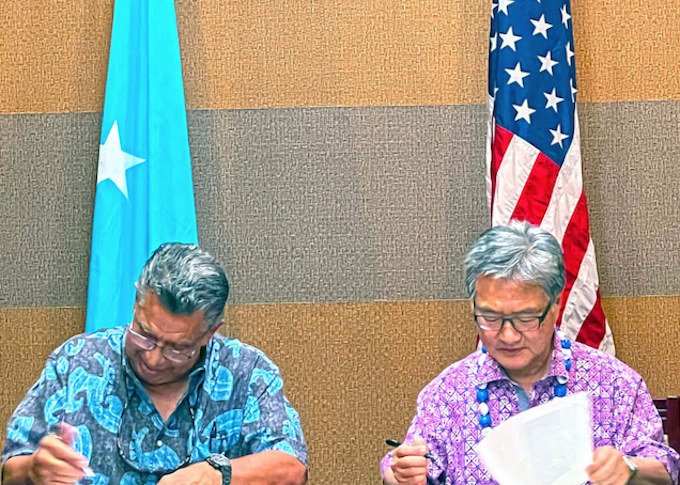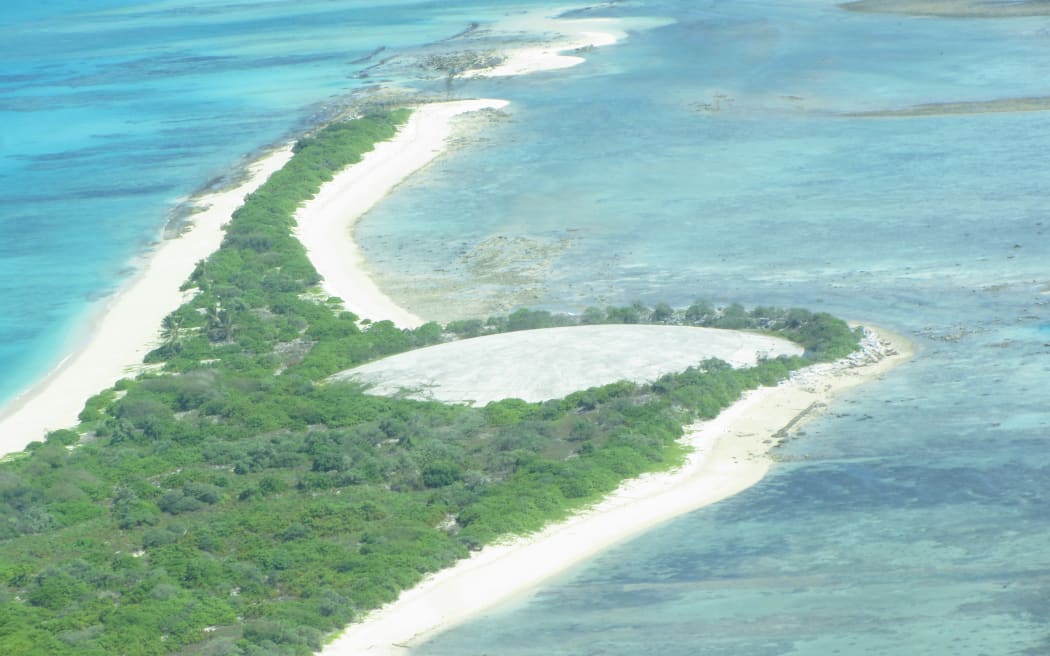
By Giff Johnson, Editor, Marshall Islands Journal and RNZ Pacific correspondent
Two Pacific nations considered by Washington as crucial in its competition with China for influence in the region have agreed to 20-year extensions of funding arrangements as part of security and defence treaties.
The Federated States of Micronesia signed off on a nearly-final Compact of Free Association on Monday with US Presidential Envoy Joseph Yun, followed by Palau on Wednesday.
Both documents are expected to be formally signed later this month, ending two years of negotiations.
- READ MORE: PNG’s Marape confident of pulling off PNG-US defence pact in spite of leak
- Other US defence reports
However, the Marshall Islands, the third North Pacific nation with a Compact, is unlikely to sign primarily because of outstanding issues surrounding the US nuclear testing legacy in the country.
The FSM will reportedly receive US$3.3 billion and Palau US$760 million over the 20-year life of the new funding agreements, according to US officials.
Yun was due to visit the Marshall Islands capital Majuro this week to discuss the situation further.
But the situation in the Marshall Islands appeared murkier than ever.
“The RMI (Republic of the Marshall Islands) looks forward to reaching an agreement soon with the US,” Marshall Islands Chief Negotiator and Foreign Minister Kitlang Kabua said on Wednesday.
Doubtful over new Compact
It is unclear at this stage when the two governments will reach agreement on a new 20-year deal, despite Kabua and Yun having initialled a memorandum of understanding in January that spelled out the amounts of funding to be provided to RMI over 20 years.
That would bring in US$1.5 billion and an additional US$700 million related to the nuclear weapons test legacy.
Yun acknowledged the situation with the Marshall Islands telling Reuters it was “doubtful” that the US and Marshall Islands would sign off on the Compact before he departs from Majuro this weekend.
At least one member of the Marshall Islands Compact Negotiation Committee said he was in the dark as to next steps.
“I really have no idea what is the game plan here,” he said.
In a widely-circulated email on the eve of Yun’s visit, Arno Nitijela (parliament) member Mike Halferty said there had been no involvement of the atoll of Arno and the majority of islands in the nation in developing the Compact.
“There is no report on the Compact negotiations for us to understand the situation,” he said. He objected to the exclusion of Arno and other islands from participation, saying the people of Arno are Marshallese like the people involved in the talks with the US.
‘Let people decide own fate’
“If we are truly a democracy, we should have had (a vote on Compact Two) and should now let the people vote to decide their own fate,” he said.
Reuters cited an unnamed “senior US official” who said the discussion between the US and RMI “is no longer about the amount of money but … about how the money will be structured and how it will be spent and what issues it will cover.”
Kitlang Kabua’s comments to the Marshall Islands Journal tended to confirm this analysis: “The RMI has matters tabled in the negotiations that are unique to our bilateral relationship with the US.
“These matters include the nuclear legacy, the communities affected by the US military operations and presence in-country, and the existential threat of climate change,” she said.
“We are also keen on strengthening processes to facilitate the RMI working jointly with the US, without jeopardising accountability and transparency, to utilise resources for areas of priorities as deemed by the RMI government’s strategic plan and other planning documents for the future.”
This article is republished under a community partnership agreement with RNZ.











































